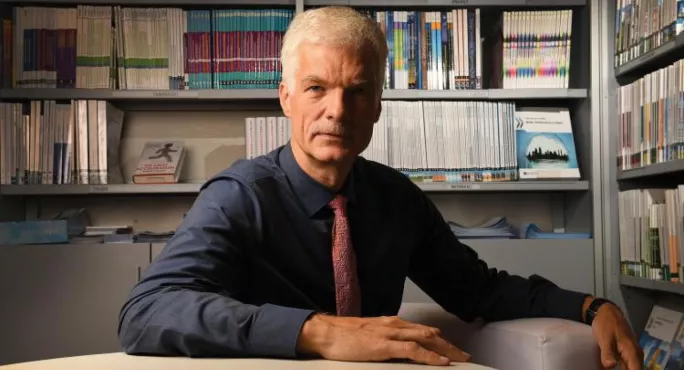Teachers’ support maybe “the one thing” that students remember of the pandemic in 10 years’ time, the head of the Programme for International Student Assessment has said.
Andreas Schleicher, who runs Pisa for the Organisation for Economic Cooperation and Development (OECD), was speaking at the Foundation for Education Development’s National Education Summit today, where he said the pastoral support offered by teachers during the pandemic would be more important to students in the future than academic support.
News: England climbs Pisa table as reading and maths improve
Estonia: Pisa’s European success story
About Pisa: What is the Pisa test and what does it measure?
“Learning is never a transactional process,” he said.
“It’s always a relational and social phenomenon. Maybe the one thing that students will remember from this pandemic 10 years from now is the teacher who reached out to them when the school was closed, the teacher who understood their dreams and passions, helped them realise their ideas in these difficult times, who helped them understand who they are and who they want to become,” he added.
“Compared with that, the world of the curriculum is so small,” he said.
Mr Schleicher also said that education systems needed to adapt to a changing world, giving climate change and the digital revolution as examples.
He said teachers needed to focus on teaching fewer concepts to students in greater depth.
“What happens is when the rich concepts and ideas of the real world end up in the school curriculum, often they become just very shallow shadows of themselves,” he said.
“When you survey British fourth-graders about science, they are all enthusiastic about exploring nature, experimenting, understanding cause and effect.
“But when you ask British tenth-graders, for many, science has become a boring world of formulas and equations that has little to do with the ideas of science.
“In the end, learning often becomes a mile wide, but just an inch deep,” he added.
“The biggest challenge for tomorrow’s teachers is to teach fewer things in greater depth.”
“Science is not just about physics and chemistry. The more important part is: do young people have a deep understanding of the foundations of the disciplines, the ways of thinking as a scientist? Can you design experiments? Can you distinguish questions that are scientifically investigative from those that are not?”
“History is not just about names and places. Can you think like a historian? Do you understand how the narrative of a society has emerged, how it advanced and sometimes how it unravels when the context changes?”
“Can you think like a mathematician? We spend a lot of time teaching students to calculate an exponential function which computers can do so much better. We spend so little time to help students understand the ideas of an exponential function, and that’s what’s driving a phenomenon like the pandemic and many concepts in nature.”
